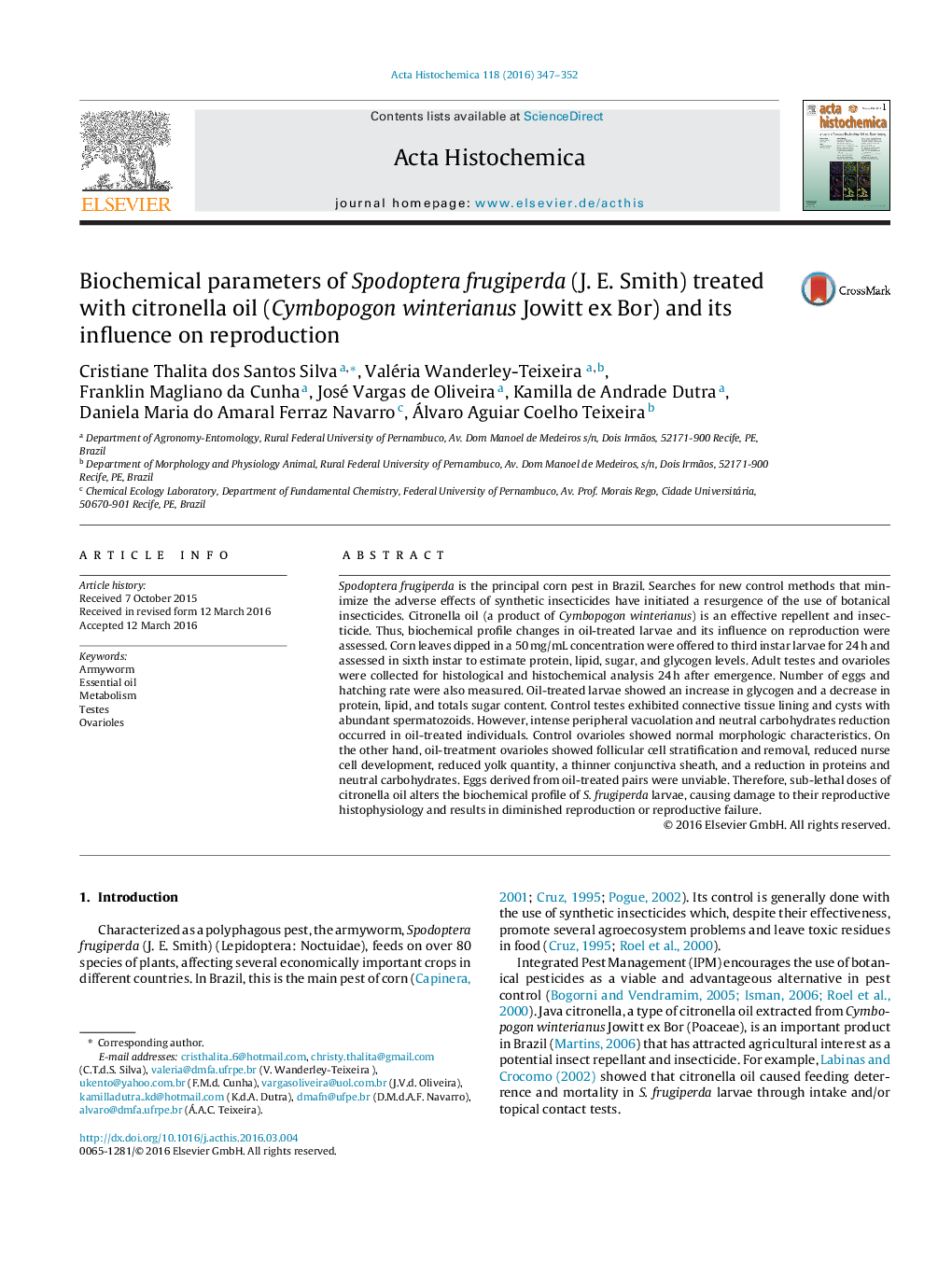| کد مقاله | کد نشریه | سال انتشار | مقاله انگلیسی | نسخه تمام متن |
|---|---|---|---|---|
| 1923301 | 1048884 | 2016 | 6 صفحه PDF | دانلود رایگان |
Spodoptera frugiperda is the principal corn pest in Brazil. Searches for new control methods that minimize the adverse effects of synthetic insecticides have initiated a resurgence of the use of botanical insecticides. Citronella oil (a product of Cymbopogon winterianus) is an effective repellent and insecticide. Thus, biochemical profile changes in oil-treated larvae and its influence on reproduction were assessed. Corn leaves dipped in a 50 mg/mL concentration were offered to third instar larvae for 24 h and assessed in sixth instar to estimate protein, lipid, sugar, and glycogen levels. Adult testes and ovarioles were collected for histological and histochemical analysis 24 h after emergence. Number of eggs and hatching rate were also measured. Oil-treated larvae showed an increase in glycogen and a decrease in protein, lipid, and totals sugar content. Control testes exhibited connective tissue lining and cysts with abundant spermatozoids. However, intense peripheral vacuolation and neutral carbohydrates reduction occurred in oil-treated individuals. Control ovarioles showed normal morphologic characteristics. On the other hand, oil-treatment ovarioles showed follicular cell stratification and removal, reduced nurse cell development, reduced yolk quantity, a thinner conjunctiva sheath, and a reduction in proteins and neutral carbohydrates. Eggs derived from oil-treated pairs were unviable. Therefore, sub-lethal doses of citronella oil alters the biochemical profile of S. frugiperda larvae, causing damage to their reproductive histophysiology and results in diminished reproduction or reproductive failure.
Journal: Acta Histochemica - Volume 118, Issue 4, May 2016, Pages 347–352
